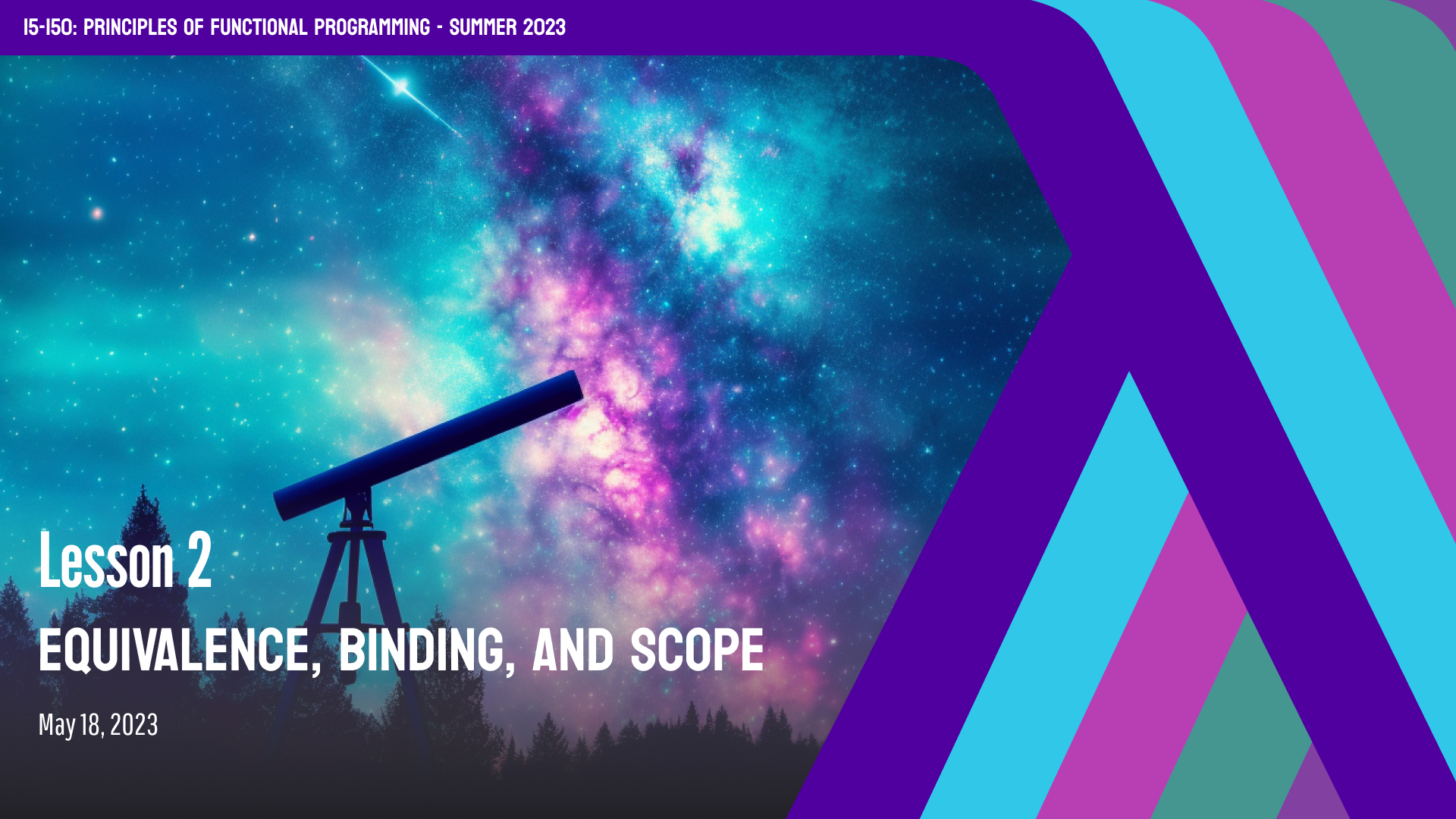Lecture 2 - Equivalence, Binding, and Scope
Following the first lecture, this lesson went into more about the evaluation model of SML.
In the first lecture, we talked about the difference between functional and imperative languages in the former's lack of state, which involves the mutation of a variable to have multiple different values over time.
We explored the idea of binding, which distinguishes variable declarations in SML from variable declarations in an imperative language, in that bound variables never change. Instead, they may be shadowed, which simply introduces a new, unrelated variable that happens to be named the same.
We then looked more examples of SML code, using the mechanism of pattern matching, which lets us decompose more complex values, like tuples, into their constituent components.
To wrap up the lecture, we discussed the concept of extensional equivalence, which allows us to perform analysis of code in the same way that one might reason about an algebraic equation (also called equational reasoning). We applied this to a small example, and saw how simple algebraic reasoning can greatly help us simplify our code.

